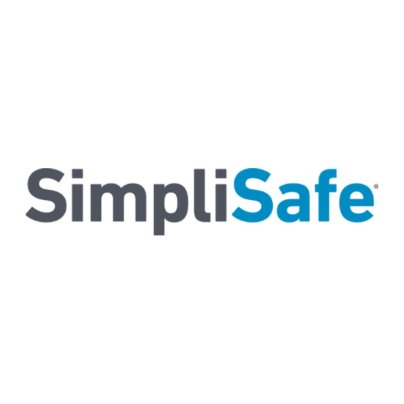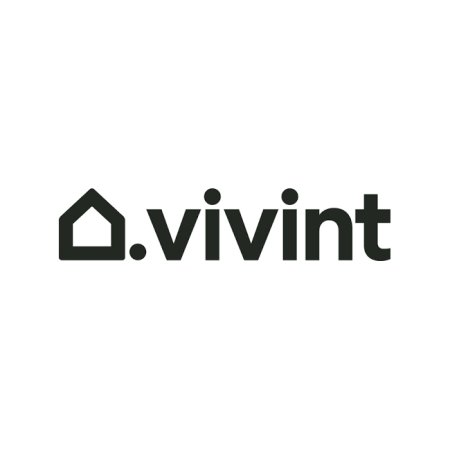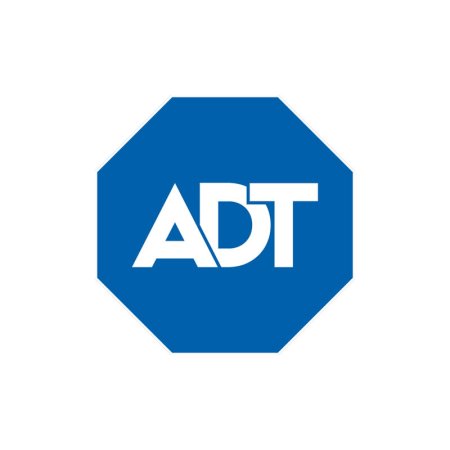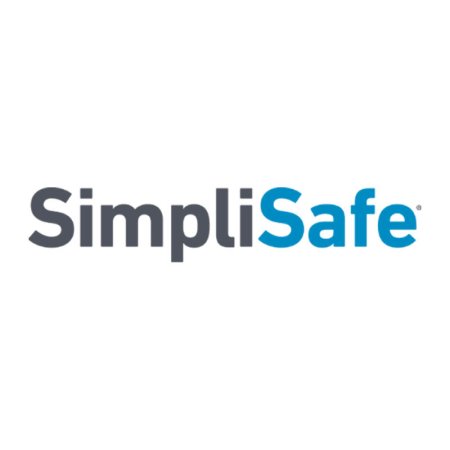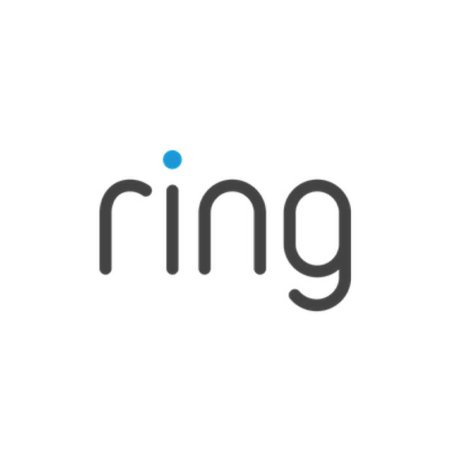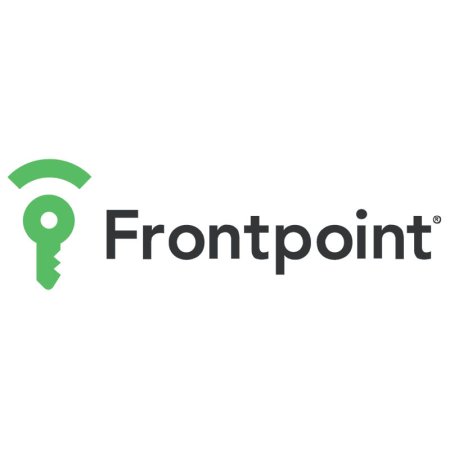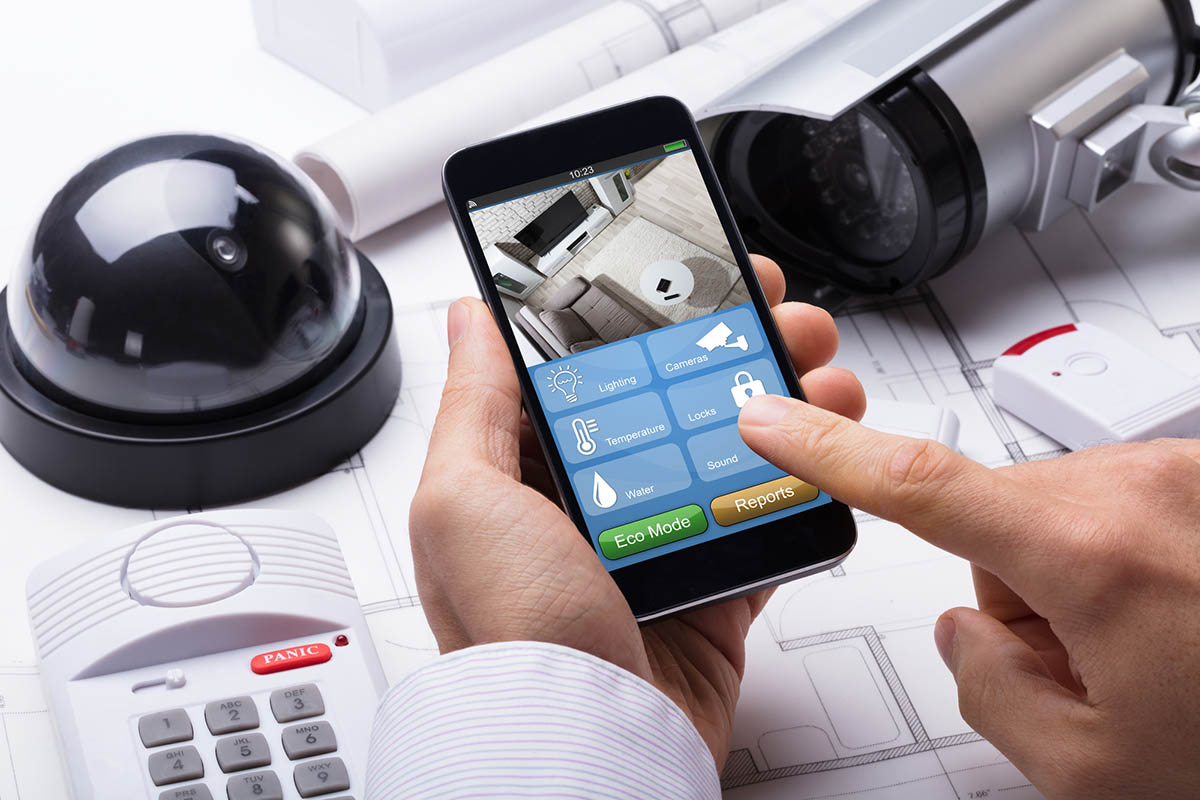
We may earn revenue from the products available on this page and participate in affiliate programs. Learn More ›
The best home security systems help customers protect their possessions, investments, and families from intruders, environmental hazards, and more. Most modern systems allow customers to operate the system and monitor their property using a mobile app, which allows them to keep tabs on things even when they’re away from home. Many systems also pair with smart-home assistants like Alexa, Google Assistant, and Siri, enabling customers to sync their home security system with their smart-home system for even more control.
There is more choice than ever before when it comes to home security systems, which is a huge benefit for homeowners and renters who want to improve the security of their home. But how are customers meant to choose the best system for their home? With careful research, customers can identify the top home security companies and find the best options available for them, no matter their home security needs.
Editor’s Note: Prices listed in this article are accurate as of the last update, but may vary. For the most up-to-date costs, please see each home security company’s website.
- BEST OVERALL: Vivint
- FULL-SERVICE MONITORING: ADT
- BEST DIY SYSTEM: SimpliSafe
- BEST BANG FOR THE BUCK: Ring
- ALSO CONSIDER: Frontpoint
Our Top Picks
When considering our picks for best home security systems, we looked for companies that offered a wide range of price options for multiple budgets, different equipment options for varying needs, and warranties to help give customers peace of mind.
Best Overall
Vivint
Pros
- Smart Deter technology uses light and sound to keep potential threats away
- Wide array of components including thermostat, garage door opener, and smart locks
- Equipment is sleek and high-end
Cons
- No transparent pricing information on main website
- No self-monitoring option
Why It Made the Cut: A flexible system with easy smart-home integration and professional monitoring, Vivint is ideal for those who want smart-home features and advanced home security but also prefer professional installation over DIY installation.
A home security system from Vivint can cover the bases for all customers, no matter the size of their home. Those who want a tailored package can call and speak to a representative to receive a customized plan and quote, though there’s also an option to buy online. All equipment packages come with 24/7 monitoring, intrusion detection, a touch-screen control panel, and access through the mobile app.
Vivint offers two preset equipment packages: The Premium Package, which costs $1,279.96 ($22 per month for 60 months), and the Premium Plus Package, which costs $2,229.92 ($38 per month for 60 months). Each package includes a Vivint Smart Hub Control Panel, a flood/water damage sensor, four break-in security sensors, a doorbell camera, an outdoor camera, a smart lock, and a key fob. The Premium Plus Package adds a second outdoor camera, an indoor camera, a smart thermostat, and a smart garage door controller. Vivint’s website lists professional monitoring plans starting at $41.47 plus tax, which is relatively high; however, to help offset the overall costs of a system, Vivint offers financing options for those who don’t want to or are unable to pay for the equipment up front.
Customers can also opt for several add-ons, including video security, theft deterrent, voice control, stored video clips, smart-home automation, vehicle protection, and more. Depending on how many features customers opt for, the cost can quickly add up, which could make Vivint pricing a little higher than some customers are willing to pay.
Customers who choose to go with a Vivint home security system will have a monitoring team on standby waiting to assist them in the event of an emergency. Vivint is a seamless, whole-home solution that’s easy to use, and the technology does a lot of the work for the customer. The system uses Z-Wave technology to enable security and automation devices to work together seamlessly. Vivint’s best home security camera is the 4K Outdoor Camera Pro—it uses Smart Deter technology, which keeps a lookout on certain areas the customer deems as important, and then sounds an alarm and illuminates the LED ring if someone hangs around that designated area for too long.
- Base cost: $1,297.96
- Minimum monthly cost: $41.47
- Installation: Professional
- Trial period: 3 days
- Warranty: Duration of the service agreement
Vivint is a 2024 recipient of BobVila.com’s Home Improvement Hero designation.
 Home Improvement Heroes recognizes the best companies homeowners could call for a problem, project, or service. Our editorial team used a rigorous process to evaluate based on availability, skills, range of services, cost, customer reviews, guarantees, refund policy, customer support, and more. We then independently reviewed each company and hired some for our projects for consideration. See the full list of honorees.
Home Improvement Heroes recognizes the best companies homeowners could call for a problem, project, or service. Our editorial team used a rigorous process to evaluate based on availability, skills, range of services, cost, customer reviews, guarantees, refund policy, customer support, and more. We then independently reviewed each company and hired some for our projects for consideration. See the full list of honorees.
Full-Service Monitoring
ADT
Pros
- Established name in home security with a large monitoring network
- 6-month trial period with money-back guarantee if equipment is faulty
- Wide variety of security packages available
Cons
- 3-year contract required
- Inconsistent pricing information on website
Why It Made the Cut: Known in the business for years as one of the bigger names in home security, ADT continues to hold its own by keeping up with the latest smart-home tech and continuing to release new home security product offerings.
ADT was founded in 1874 and has continued to keep its finger on the pulse of the latest home security technologies ever since. With some of the best tech and monitoring in the industry, ADT earns a spot as one of the best home security systems currently available. A wide variety of available security packages means there’s a package for almost anyone, regardless of their requirements.
ADT traditionally produces equipment designed for professional installation, but there’s also the ADT Self Setup option which customers can install themselves. Customers who opt for a professionally installed ADT security system will sign a monitoring contract for 36 months (except in California, where the contract is 24 months). Those who choose to finance their system will sign a 60-month contract instead. If a customer wants to end their contract early, they could end up paying as much as 75 percent of their regular monthly fees for early cancellation. ADT Self Setup customers won’t be required to sign a contract, nor will they have the option to finance their equipment. However, they will still be required to sign up for professional monitoring as ADT doesn’t offer a self-monitoring option.
ADT has a total of four apps to help customers control their security systems, pay their bills, and stay safe while out of the home. Customers will need to choose the Smart or Video monitoring plan to get access to the ADT Control app, which allows users to control their smart-home and home security devices from anywhere using just a smartphone or tablet. The ADT+ app is designed for ADT Self Setup customers, allowing them to control their security system and smart-home devices and stream live video using their smartphone.
Customers who choose to go with a regular ADT system will pay a monthly ADT cost of somewhere between $45.99 and $61.99 for monitoring (depending on the package chosen), along with a possible installation cost and the cost of their equipment. There are options for panic buttons, flood sensors, carbon monoxide detectors, and cameras, in addition to the traditional motion sensors and keypads. ADT Self Setup customers will pay slightly less for professional monitoring—between $24.99 and $34.99 depending on the package. Customers will find that they can get a comprehensive home security solution from ADT regardless of their needs. And if the equipment malfunctions within 6 months and is unable to be repaired, customers can get their money back.
- Base cost: $599
- Minimum monthly cost: $24.99
- Installation: Professional or DIY
- Trial period: 6 months
- Warranty: 90 days
Best DIY System
SimpliSafe
Pros
- Outdoor wireless cameras are easy to install
- Batteries last for up to a decade
- Wide range of add-on options
Cons
- Limited starter pack
Why It Made the Cut: An affordable option with various service levels to fit different household needs, SimpliSafe is one of the best DIY home security systems.
SimpliSafe entered the market back in 2009, and it has since become one of the best-known names in DIY security systems. It is known as one of the best wireless home security systems because of the myriad wireless products the company offers, like cameras and sensors. Other benefits to SimpliSafe include its lengthy warranties and affordable base packages.
How does SimpliSafe work? Customers can choose from seven preset equipment packages (or build their own package) and pair it with either professional or DIY monitoring. Some of SimpliSafe’s starter packages don’t provide much variety in the way of equipment. The most basic four-piece DIY kit retails for around $249.96, though SimpliSafe often has promotional prices listed. This system includes a base station, keypad, entry sensor, and motion sensor, making it one of the best apartment security systems and ideal for smaller homes. But customers can choose between other kits that include extra home security products like water sensors, smoke detectors, and panic buttons. They can also add on other products like cameras, video doorbells, and smart locks. SimpliSafe tops out at $709.90 for the most comprehensive equipment package (The Beacon), and customers can usually find a sale that decreases the price.
One of the best aspects of a SimpliSafe home security system is that it offers the best of both worlds—customers can do a DIY install, but they can also take advantage of professional monitoring services (and they can also opt for professional installation if they prefer). Standard monitoring is $0.66 per day, which puts SimpliSafe’s monthly cost around $20. It includes 24/7 police, fire, and medical monitoring and dispatch, so customers can get authorities to their home quickly in the event of an emergency.
It also comes with up to a 1-year warranty and HD live view on all cameras. Customers can also choose the Fast Protect Professional Monitoring service for $0.99 per day, which comes with even more features like video verification, smart-home integration, arming reminders, and a lifetime equipment warranty. SimpliSafe has a self-monitoring plan that costs $0.33 per day. This plan allows customers to remotely arm and disarm their home, download video recordings, and control their system from the mobile app.
- Base cost: $249.96
- Minimum monthly cost: $9.99
- Installation: DIY
- Trial period: 60 days
- Warranty: 3 years
Best Bang for the Buck
Ring
Pros
- Monthly cost is relatively affordable
- Neighbors by Ring app provides local crime and security updates
- Motion sensing and night vision capabilities on select cameras
Cons
- Limited number of devices available
Why It Made the Cut: With cutting-edge technologies and consistent new product releases, Ring has positioned itself as one of the best and most affordable home security companies.
A Ring home security system gives customers quite a bit for its monthly Ring Doorbell cost. As one of the best self-monitored home security systems, the cheapest Ring subscription costs $3.99 per month or $39.99 per year. This tier of subscription does not include professional monitoring, as it’s more appropriate for someone with a stand-alone Ring camera or video doorbell. While the Basic plan will only record one doorbell or camera, customers with multiple Ring home devices can opt for the Plus plan for $10 per month or $100 per year, which provides video recording for all Ring devices within the home.
The Ring Protect Pro service is $20 per month or $200 per year, and it’s the better option for anyone with a Ring alarm system. This option includes professional monitoring and Alexa Guard Plus in addition to features like 60-day video history and person alerts. All in, customers will pay less than they would pay with many other home security systems, but they can still save video recordings from their camera as well as get alerts to possible emergencies and deter intruders via the included Alexa Guard Plus service.
How does Ring work? With a Ring security camera system, customers can pick and choose which products they want and don’t want. Customers can opt for a cheap starter kit for as little as $199.98, plus they can add on extra products like doorbells, cameras, floodlights, and smoke/carbon monoxide detectors (though the selection is relatively limited). Ring also runs sales on its security kits from time to time, so customers may be able to find an even cheaper price around certain holidays.
Customers can control their Ring devices through the Ring – Always Home app, as well as communicate with visitors through video doorbells or cameras. Ring offers an additional app called Neighbors by Ring, which allows the user to connect with other Ring users in their neighborhood to communicate safety alerts and other information about suspicious activity neighbors have reported in their neighborhood. Finally, Ring works with Google Home and Amazon Alexa, which helps customers integrate their home security with their smart home devices more easily.
- Base cost: $199.98
- Minimum monthly cost: $3.99
- Installation: DIY
- Trial period: 30 days
- Warranty: 1 year
Also Consider
Frontpoint
Pros
- Compatible with security devices from other companies
- Wide selection of preselected packages or build-your-own options
- Hourly automatic system checks
Cons
- Monthly cost may be higher than other DIY options
- Limited wireless equipment selection
Why It Made the Cut: Frontpoint offers a system that customers can easily install themselves, along with 24/7 professional monitoring from a team of trained experts.
Frontpoint’s name isn’t as recognizable as some of the other names in the home security industry, like ADT or Ring, but the brand has set itself up to be a major competitor in this space. Frontpoint doesn’t require a long-term contract, but it only offers professional monitoring as a full-service home security solution (no self-monitoring). Frontpoint monitoring service starts at $1.64 per day (around $50 per month) and includes 24/7 support, fast response times, an emphasis on privacy and security, and a number of other perks like alerts, sensor history, and video history.
While Frontpoint has a relatively limited wireless equipment selection compared to others in the industry, it does offer a variety of different equipment solutions for different levels of security needs—and customers have the option of building their own packages if the preselected ones don’t suit their needs. Frontpoint is also compatible with security devices from other companies, so users with their own security equipment can still opt for Frontpoint’s services. Finally, Frontpoint performs hourly automatic system checks, which ensures that customers’ devices don’t die or get disconnected for extended periods.
- Base cost: $421.93
- Minimum monthly cost: $50
- Installation: DIY
- Trial period: 30 days
- Warranty: 3 years
Our Verdict
Vivint offers an array of alarm, camera, and sensor products to protect the home as well as 24/7 home monitoring to assist in the event of an emergency. ADT is also a household name, and ADT home security systems are a great option for those who want full-service monitoring.
How We Chose the Best Home Security Systems
When determining the best security systems for homes, we looked at several factors, but we placed the most weight on each potential candidate’s product releases and the brand’s ability to keep pace with recent technology. We evaluated these systems based on their pricing, fees, packages, plans, and monitoring services. We also took into account their home automation and device compatibility, reputation and customer reviews, installation options, and whether they offered a trial period or warranty (and if so, for how long).
Choosing the best home security systems requires a balance—finding which system offers the best performance for each individual situation without that system being overpriced or lacking in other key areas like security, installation options, or customer service.
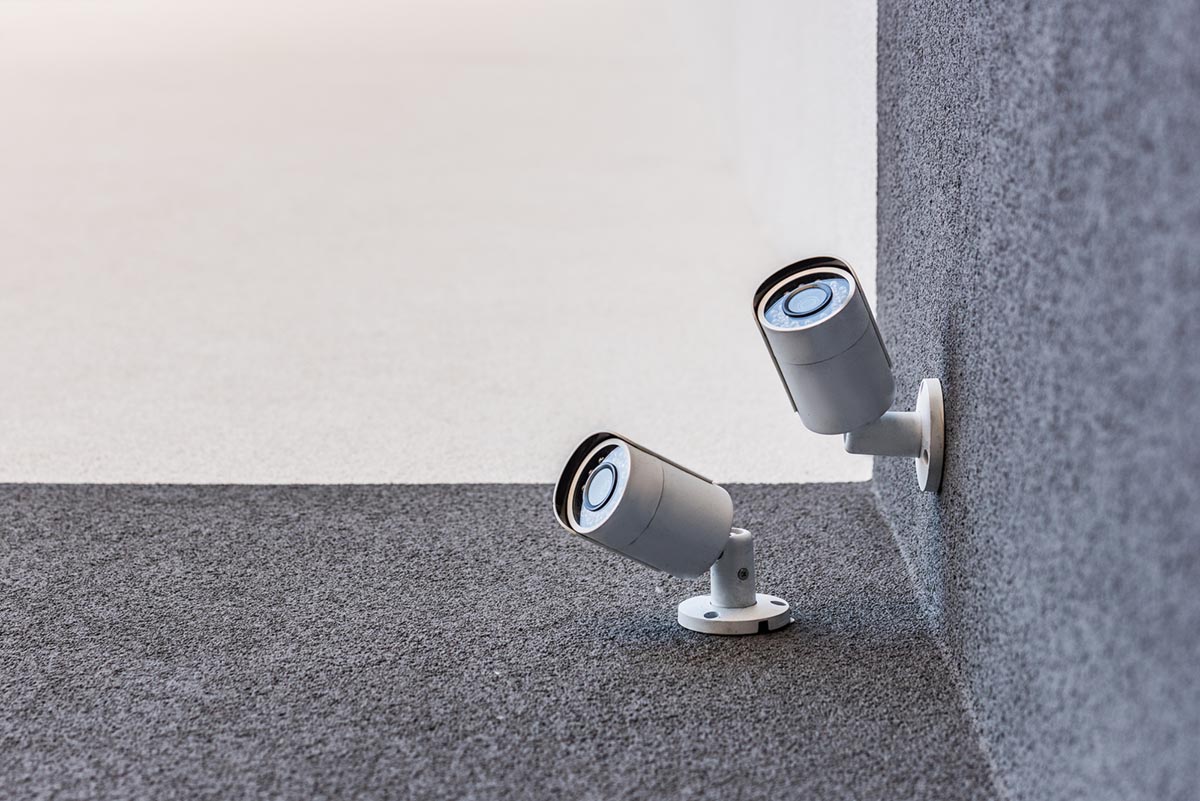
What to Consider When Choosing One of the Best Home Security Systems
There are several factors for customers to consider when wondering what to look for in a home security camera system. When shopping for a security system for home use, it’s a good idea for customers to consider the cost of the home security system, the installation process, the equipment they’re getting for the price, the cost of monitoring or subscription fees, and any additional details like warranties and cancellation fees.
Pricing and Fees
Most home security systems include a base cost for the equipment, as well as a monthly cost for monitoring or subscription fees. Customers will want to evaluate exactly what equipment they’re getting for this base cost to determine whether it includes the equipment they need or whether they will need to add extra equipment for an additional cost.
Some customers may be tempted to opt for a cheap home security system or a package with fewer features to save on cost. But paying for an ineffective system will not deliver the results the customer is looking for from their home security system. Similarly, paying for unneeded equipment can mean the customer is paying more than they need to for their home security system and wasting money.
The same applies to the cost of monitoring and subscription services. Customers will want to look at what each company offers for its monthly cost and make sure they’re getting the features they want or need. Some companies require customers to sign contracts with their service plans, which can come with benefits like extended warranties, although others allow free cancellation at any time.
Customers will also want to consider factors like smart-home integration, video recording, monitoring, and product support, and carefully examine the details to see exactly what they’re getting for their money.
Packages and Plans
Most home security brands offer a variety of solutions at different price points. This way, they can offer options for customers who have an 800-square-foot studio apartment as well as customers who have a 4,000-square-foot single-family home. Customers will find that the number of equipment packages offered will depend on the home security company, with some offering only two or three and others offering six or seven. Several brands also offer products on an a la carte basis, so customers can buy a base package and then add on a few sensors or cameras without having to move up to the next package tier if it doesn’t fit their needs.
It’s important for customers to note that the cost of equipment does not typically include the monthly monitoring fee. Even a self-monitored system may include a small fee for camera security system storage. It’s a good idea for customers to think about these system costs holistically when deciding which one is the best fit.
Customers will want to ask about deals and discounts—some companies may offer discounts on additional equipment for customers who have professional monitoring plans, which may help offset the cost of that plan somewhat.
Installation and Equipment
Some home security systems don’t need to be installed by a professional, though others offer a choice between professional and DIY installation for customers who know how to install security cameras or feel comfortable doing so. Even with systems that can be installed by the customer, some homeowners prefer having an experienced professional on site to decide where to place security cameras or show them how the system operates.
Mike Silva, owner and principal consultant at Silva Consultants, advises, “DIY equipment…can work well in basic applications such as apartments and small homes. Professionally installed systems offer a far wider range of devices that can be used and are usually best for larger homes or when there is a need for more sophisticated types of intrusion-detection devices.”
Companies like SimpliSafe and Frontpoint are ideal for those who want to install their own equipment, while brands like ADT and Vivint are good choices for customers who don’t mind paying security camera installation costs. Many home security companies offer customers a choice of DIY and professional installation so they can choose the option that works best for them.
Customers will want to make sure they’re getting enough window and door sensors, cameras, and hazard or environmental sensors like flood or smoke/carbon monoxide detectors to fully protect their home. Residents of a large two-story home will likely need more equipment than a family who lives in a small ranch house, which will be reflected in the cost. Customers can look into how many security cameras they need to help them choose the right company to fit their needs.
Monitoring
Systems with professional monitoring typically have monthly fees, whereas those that are self-monitored may not have associated fees. However, home security systems with cameras that are professionally monitored provide benefits that customers with self-monitored systems won’t get.
A home security camera system is made much more effective with the addition of monitoring. With professional monitoring, the customer has a team of experts available all day, every day, to assist in the event of an emergency. According to Silva, “If the home has a monitored fire alarm system and catches fire, it is far better to have a monitoring center call the fire department immediately than hope that the homeowner receives the notification and can quickly take action.” With self-monitoring, the customer will be responsible for calling 911 if an emergency occurs. Professional monitoring is typically more expensive than DIY monitoring but generally promotes added safety and a sense of security, which makes the home security system more effective, as well as giving customers greater peace of mind.
Self-monitoring may be a practical option for customers who live in a relatively safe area, whose home doesn’t have a lot of access points, and who feel comfortable with monitoring their own system. In this case, the customer can save money each month by skipping professional monitoring. Plus, with more and more user services hitting the scene like Alexa Guard Plus, some people might not feel they need professional monitoring anyway.
For a cost of $4.99 per month or $49 per year, Alexa Guard Plus gives customers access to an emergency helpline while also sending them alerts in response to broken glass sounds, smoke or carbon monoxide detector sounds, or other dangerous activity sounds. It can also help deter intruders by making siren or barking dog noises, as well as turning smart lights on and off to make it look like someone is home. Customers will want to keep in mind that Alexa Guard Plus is not a pro monitoring service, but rather only a helpline and a few additional features (like Alexa Intruder Alert) that help promote added security.
Trial Period and Warranty
Some companies offer their monthly subscription or monitoring services for free for a limited amount of tim. But after that time frame, the customer will have to pay for that service or lose it, and they might not be as happy with their home security system without the monthly subscription or monitoring service.
For customers who are financing the equipment, the monthly charge might not even be optional. Customers will want to consider the costs they may incur after the trial period and decide whether that cost is something they can afford long term.
Lengthy trial periods are a good indication that the brand is confident that users will be satisfied with the product and want to keep using it long term. Similarly, when a brand includes a generous warranty, this is a sign that the company is confident in what it’s selling.
According to Silva, “Most equipment manufactured these days is quite reliable, and if it survives the warranty period, will probably last for many years thereafter.” With security systems for home use, there is a wide range in the warranty time period between companies. To compare SimpliSafe vs. Ring, SimpliSafe offers a 60-day money-back guarantee, whereas Ring’s guarantee lasts only 30 days. Some brands offer 90 days, while others offer 3 years or longer.
The details of a warranty matter, too. Does the warranty cover manufacturing defects pertaining to equipment, or does it cover all the equipment and the installation as well? This information is just as important as the warranty time frame, so customers will want to ask the company for more details about its warranty if it isn’t clearly advertised.
Home Automation and Device Compatibility
With smart-home devices increasing in popularity, it’s important for homeowners to choose a home security system that is compatible with their other frequently used devices such as Alexa, Apple HomeKit, Google Home, and others. Many security systems also offer smart-home equipment that can be added to systems. Some common additions include thermostats, lighting, and garage door openers. These features make it possible for residents to control parts of the home remotely; for example, turning lights on and off or changing the temperature.
Many systems provide this functionality through smartphone apps. While it may not be the first factor that comes to mind when a customer is choosing a security system, it’s wise for them to consider a company’s app in addition to the rest of the system. An app that has a poor user interface or functionality will be a huge inconvenience and even a safety hazard. Potential new customers can check ratings and reviews in the app store to get an idea of existing customers’ experiences.
Reputation and Customer Reviews
It’s almost impossible for a customer to know for sure whether a system will be a good fit until it’s actually been put to use. Customers may struggle to decide on what company is right for them, especially if they have narrowed it down to two good options like Vivint vs. Ring or SimpliSafe vs. ADT.
In general, household-name companies that have been in the home security space for a while tend to be reliable. The company’s reputation and customer reviews can be a good way for customers to get the information they need before making a purchase. Reading reviews on sites such as Trustpilot or the Better Business Bureau (BBB) may provide customers with some insight, though they may disproportionately represent customers who have had negative experiences. Many trustworthy sites include security system reviews that weigh the pros and cons of popular systems and can address common concerns.
One of the best options is to ask neighbors and friends how they like their security systems to get an honest assessment.
Before You Install One of the Best Home Security Systems
A good home security system serves as a deterrent, with yard signs that serve as a warning, sensors that alert customers to motion and breaking glass, different types of window alarm sensors to detect intruders as they enter the home, and monitoring services that can help get the police or fire department to the home as soon as possible in the event of an emergency. It’s essential that customers get everything they want and need in their chosen home security system.
Before shopping for a system, customers can list out their must-have features or equipment requirements, whether they’ll require professional installation, and whether professional monitoring or self-monitoring is a better fit. If the choice comes down to Frontpoint vs. SimpliSafe, knowing that the customer prefers DIY monitoring and only SimpliSafe offers this option will make their decision easier. Customers will also want to consider whether a wired or wireless security camera system will work best for their home. This will help narrow down the search and ensure that the system the customer chooses provides as much protection as is necessary.
Unfortunately, hacking can be a risk for security system owners, although it is rare. Before setting up the system, customers will want to take precautions such as choosing strong Wi-Fi passwords and setting up two-factor authentication. They will also want to remember to avoid accessing the system from a network other than the home’s private Wi-Fi, as public networks are more vulnerable to hacking than secured ones.
Cost of Buying One of the Best Home Security Systems
While some will prefer the ease of use associated with a system like Vivint, others will prefer the added flexibility, DIY installation, and affordability they can get with a brand like Ring or SimpliSafe. Weighing these benefits and costs is the key to finding the best home security system for each individual customer. On average, a home security system costs $700, but that cost is heavily dependent on a number of factors such as monitoring, installation fees, number of equipment pieces, and others. The costs could easily be lower or higher than the average depending on the specific home security setup. Customers could pay as little as $280 or as much as $1,150 for the average home security system.
If costs are a concern, customers may want to ask a representative from the security company about leasing or financing options. Many popular brands allow customers to finance their payments over the course of months or years. Others offer the option to purchase the system gradually, adding equipment at a discounted price at their convenience.
It’s also worthwhile for customers to ask if any discounts are available, as deals and promotions are common for home security companies (especially around holidays and national sales events such as Black Friday).
The Advantages of Using One of the Best Home Security Systems
A home security system is both a preventive mechanism and an investigative tool. Yard signs let intruders know that the homeowner or renter has a security system, and the presence of home alarms may also help deter a possible intruder. Smoke and carbon monoxide (CO) detectors can help prevent devastating events resulting from fires or leaking CO gas. Ultimately, investing in the right home security system for a customer’s needs is worth the cost.
Choosing one of the best home security systems is an investment in the customer’s home, their peace of mind, their mental health, and their physical safety. When a homeowner or renter has an alarm system, especially a reliable system, it provides a sense of comfort and makes them feel safer overall. The best home security systems offer the following benefits.
- Deterrent for home intruders, or evidence of an intrusion for an official police report;
- A sense of safety and peace of mind for customers who can feel that their homes are more secure; and
- A relatively affordable cost for the amount of available features and ever-evolving technology.
FAQs
Customers who are still going back and forth between two or more options may find it encouraging to know that many people see benefits in more than one home security company. Before choosing the best home security system for them, homeowners and renters can consider several frequently asked questions to help them reach their decision.
Most home security starter systems come with a keypad, motion sensors, and a hub at minimum. Some systems may include additional products like key fobs, panic buttons, indoor and outdoor cameras, video doorbells, smoke detectors, carbon monoxide (CO) detectors, or glass-break sensors. Some of the best home security system companies also offer home automation equipment so customers can conveniently manage their home security and smart devices from one app.
It’s advised for homeowners and renters to avoid posting their absence on social media, as this lets potential intruders know their house will be empty for a certain time period. Also, residents can program their smart lights to periodically turn on and off while they’re gone, so it looks like someone is home.
Residents will want to set their alarm system and place cameras at entrance points to catch any potential intruders.
Finally, it’s advised that residents let their neighbors know that they will be gone so they can have extra eyes on their home while they are out of town (and so they can pick up their mail so it doesn’t pile up and clue in intruders to the resident’s absence).
Taking advantage of security features like two-factor authentication can make a big difference. Additionally, it’s wise for customers to make sure they’re changing their password regularly, using strong passwords, using guest networks (instead of allowing guests on their regular network), and taking advantage of a password vault application.
With self-monitoring, customers can contact the authorities if they see something suspicious or dangerous happening. Customers with professional monitoring will have their provider contact the authorities if their alarm goes off (provided it’s not a false alarm). There are benefits and drawbacks to both monitoring options, and customers will want to take into account their personal preferences and budget before deciding on the best monitoring option for them.
Yes. Homeowners can potentially get a discount on their insurance premium of as much as 20 percent with a home security system. However, homeowners rarely receive that large of a discount, and the typical home insurance discount for security system installation is usually in the range of 2 percent to 15 percent. To find out exactly how much they could save on their homeowners insurance premiums, homeowners are encouraged to reach out to a representative from their insurance provider.


